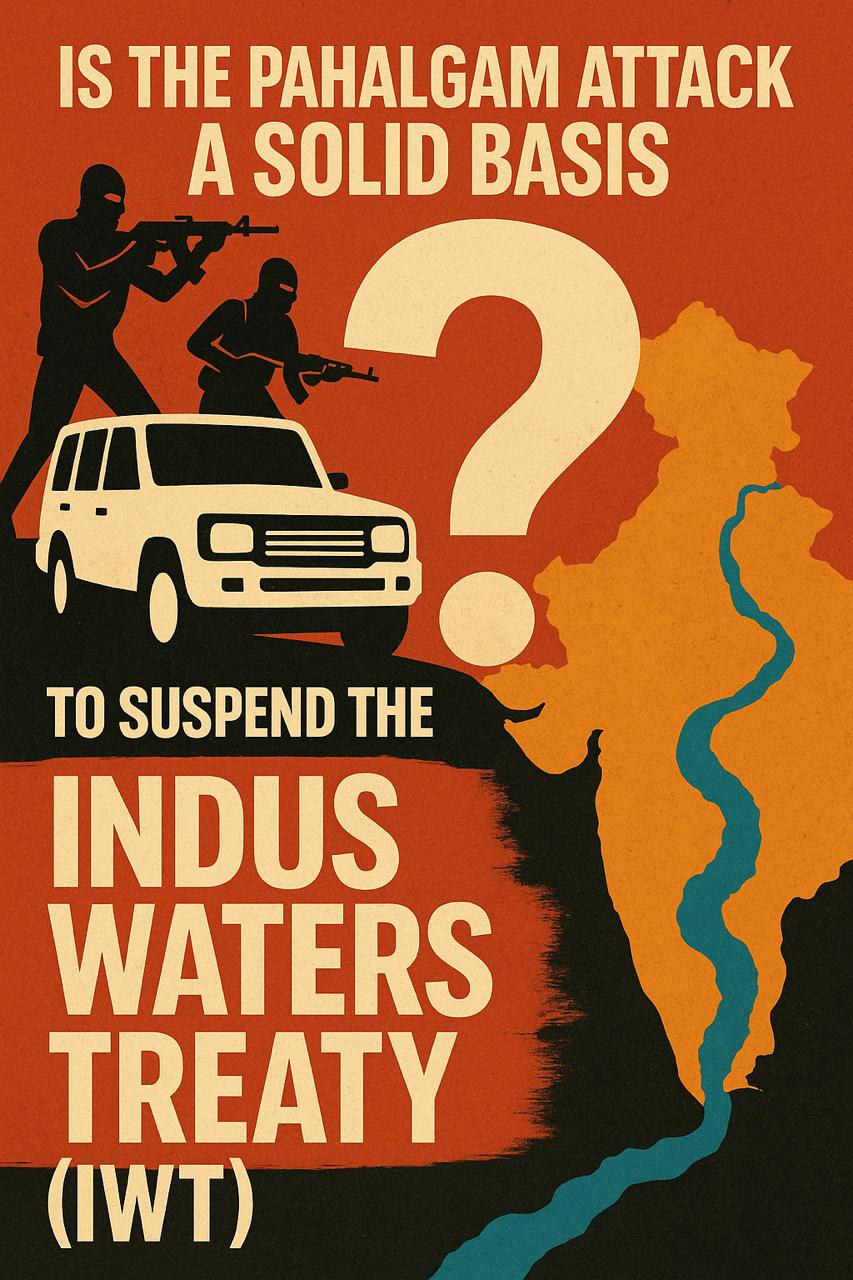Pahalgam, which means “valley of shepherds” in Kashmiri, is one of the most visited tourist destinations in the region, located about 50km [31 miles] from the main city of Srinagar. Around afternoon 2:45 p.m. on 22 April 2025 a group of armed men dressed in cover figures from a nearby forest, according to an official who spoke on condition of confidentiality due to the sensitive nature of the information not yet released by security forces. The assailants “opened fire indiscriminately at Baisaran meadow,” a photogenic hillside destination accessible only on foot or by pony, the official reported. The gunfire erupted suddenly, catching many tourists off guard. Simran Chandani, a visitor from Nagpur in the western Indian state of Maharashtra, said she feared for her life during the attack and wasn’t sure she would make it out alive. The Pahalgam attack was an attack on tourists by five armed militants in which 26 civilians were killed. A statement issued in the name of The Resistance Front (TRF), which is believed to be an offshoot of the Pakistani-based Lashkar-e-Taiba, claimed responsibility for the attack. The statement linked the attacks to the thousands of residency permits being handed over to Indian citizens, permitting them to live and work in Kashmir.
However it could not independently confirm the statement’s authenticity (Al-Jazeera). In response, India has alleged cross-border involvement, accusing Pakistan of complicity, though without providing concrete evidence. As a consequence, India has suspended its obligations under the Indus Waters Treaty (IWT), a water-sharing agreement signed in 1960 and brokered by the World Bank. This move has set off a legal and diplomatic debate: can a single terror incident, such as the Pahalgam attack tragic and politically charged as it may be — serve as a legitimate basis for withdrawing from a longstanding international treaty? Islamabad has denied involvement and is calling for a neutral investigation, rejecting India’s actions as politically motivated. In the Vienna Convention, the rules governing the suspension of treaties are outlined in Part V. According to Article 42, a treaty may only be suspended in accordance with the provisions set forth by the Convention itself. Specifically, Article 57 states that a treaty’s operation— whether for all parties or a specific party—can be suspended under two circumstances: (a) if the treaty explicitly allows for it, or (b) with the mutual consent of all the parties involved, following consultation with the other contracting  states. Notably, the Indus Waters Treaty does not contain any clause that permits its suspension. It does not include provision for suspension, nor has India consulted Pakistan regarding its intent to suspend the treaty. This action constitutes a clear violation of Articles 42 and 57 of the Vienna Convention. While Article 60 permits suspension in case of a material breach, India has not alleged any such breach by Pakistan.
states. Notably, the Indus Waters Treaty does not contain any clause that permits its suspension. It does not include provision for suspension, nor has India consulted Pakistan regarding its intent to suspend the treaty. This action constitutes a clear violation of Articles 42 and 57 of the Vienna Convention. While Article 60 permits suspension in case of a material breach, India has not alleged any such breach by Pakistan.
Despite surviving multiple wars between India and Pakistan, the Indus Waters Treaty is now being suspended by India on the basis of a single, unresolved terror attack in Pahalgam—an incident with no confirmed state backing. This move appears less a reaction to the attack and more the continuation of a long-standing strategy. Since 2016, when Prime Minister Modi first linked blood and water after the Uri attack, India has taken calculated steps—such as the 2019 revocation of Article 370— to assert greater control over Kashmir and its resources. These political maneuvers suggest premeditated intent rather than lawful justification. Under international law, especially the Vienna Convention, such actions do not constitute valid legal grounds for suspending a treaty. Thus, while the Pahalgam attack was undeniably a grave and tragic event, its use as a legal basis to suspend the Indus Waters Treaty appears inconsistent with international treaty law, particularly the Vienna Convention. Unless India can prove state responsibility or a material breach, its unilateral suspension lacks legal justification.
IS THE PAHALGAM ATTACK A SOLID BASIS TO SUSPEND THE INDUS WATERS TREATY (IWT)?
Despite surviving multiple wars between India and Pakistan, the Indus Waters Treaty is now being suspended by India on the basis of a single, unresolved terror attack in Pahalgam—an incident with no confirmed state backing. Under international law, especially the Vienna Convention, such actions do not constitute valid legal grounds for suspending a treaty. Unless India can prove state responsibility or a material breach, its unilateral suspension lacks legal justification.

You need to login in order to like this post: click here
Subscribe
Login
0 Comments
Oldest
